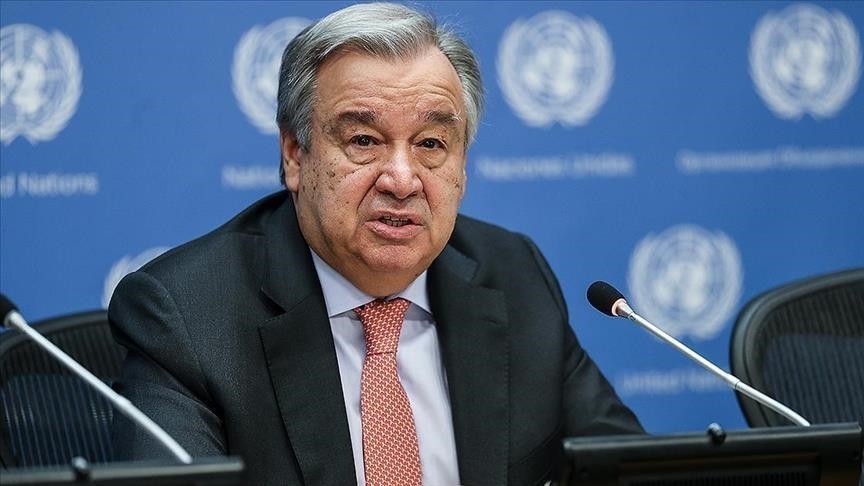By Haruna Gimba
The United Nations Secretary-General on Monday highlighted the urgent need to defend women’s rights which are under threat, citing a reversal in hard-won progress, increasing violence against women and a growing digital gender divide.
Addressing the opening of the Commission on the Status of Women (CSW), the pivotal forum dedicated to promoting and safeguarding the rights of women and girls worldwide, Secretary-General António Guterres stressed the disproportionate impact of wars on women.
“In conflict zones around the globe, women and girls are suffering most from wars waged by men,” he said, urging immediate ceasefires and humanitarian aid.
He emphasized the appalling situation in Gaza, where over two-thirds of those killed and injured during Israel’s offensive are reportedly women and girls.
He also noted shocking testimonies of sexual violence against Palestinian women in detention settings, house raids and checkpoints in the Occupied Palestinian Territory.
In Israel, he added, last week’s report released by UN Special Representative Pramila Patten highlights horrific sexual violence against women and girls and indications of sexualized torture during the terror attacks launched by Hamas and other armed groups on October 7.
Mr Guterres also voiced concern over the situation faced by women in other countries, including Afghanistan and Sudan.
“In Afghanistan, the Taliban has issued more than 50 edicts suppressing women’s and girls’ rights. In Sudan, scores of women have reportedly been subjected to rape and other forms of sexual violence in the ongoing conflict,” he said.
Secretary-General Guterres stressed that despite evidence that women’s full participation makes peacebuilding much more effective, the number of women in decision-making roles is falling.
“The facts are clear: Women lead to peace,” he said, calling for more funding and new policies to boost women’s participation and investment in women peacebuilders.
The UN chief also emphasized a growing digital gender divide, noting the dominance of men in digital technologies, particularly in Artificial Intelligence.
He warned that male-dominated algorithms could perpetuate inequalities into various aspects of life, noting that women’s needs, bodies and fundamental rights are often overlooked in the design of systems by male leaders and technologists.
“It’s time for governments, civil society and the Silicon Valleys of the world to join a massive effort to bridge the digital gender divide and ensure women have decision-making roles in digital technology at all levels,” he urged.
Mr. Guterres also drew attention to the pressing need for women to hold leadership roles, particularly in financial institutions.
He highlighted the stark gender disparity in finance, with over eight of 10 finance ministers and more than nine out of ten central bank governors being men.
The Secretary-General emphasized that dismantling structural barriers is crucial for achieving gender parity in leadership roles.
“Overwhelmingly male-dominated financial institutions need to dismantle the structural barriers that are blocking women from leadership roles,” he said.
Drawing parallels with the UN’s successful achievement of full gender parity among senior management and leaders worldwide, he urged governments, banks and businesses to replicate these efforts, emphasizing that change does not happen by accident.
The Secretary-General concluded his address by urging the international community to unite in the fight for gender equality, emphasizing that the CSW serves as a catalyst for transformative change.
He called for collaborative efforts to end poverty in all its dimensions.
“Let’s do it by investing in women and girls, betting on women and girls, and pushing for peace and dignity for women and girls everywhere,” Mr. Guterres said.
The President of the General Assembly, Dennis Francis, continued the call to action, highlighting the urgency of intensifying efforts to achieve Sustainable Development Goals (SDGs).
With the world currently lagging attaining the Goals, particularly the Goal to eradicate extreme poverty (SDG1), Mr. Francis revealed a stark reality:
“Currently, one in every ten women lives in extreme poverty – I repeat – one in every ten women,” he said.
Underscoring the need for a multidimensional approach, the Assembly President urged equal access to resources, gender-responsive social protection policies, and measures to end gender-based discrimination inhibiting women’s leadership and decision-making roles.
The 68th session of the Commission on the Status of Women is taking place from March 11 to 22 at the UN Headquarters, in New York, under the priority theme,
“Accelerating the achievement of gender equality and the empowerment of all women and girls by addressing poverty and strengthening institutions and financing with a gender perspective.”
Held every year, CSW is the largest global gathering of civil society representatives, government officials, policy makers and experts to take stock of progress on gender equality, discuss pressing issues and agree on actions to transform the lives of women and girls everywhere.
It consists of a wide range of meetings, panel discussions, interactive dialogues, ministerial round tables, intergovernmental negotiations and more.




